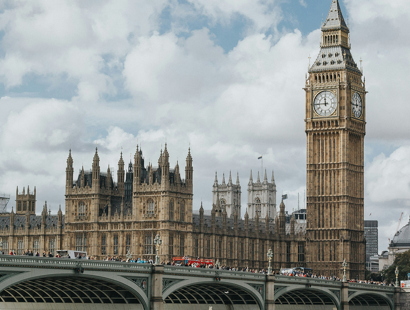
UK FIG regime takes effect: what this means for non-doms and investors
With the implementation of the Foreign Income and Gains (FIG) regime, partner Julie Man explores key trends emerging in international tax policy and among high-net-worth individuals (HNWs), as well as the potential impact of the new system on the UK’s appeal to investors.
The Government has followed through on its plans to abolish the UK resident non-domiciled individuals system, replacing it with a residence-based system. The remittance basis is out, and a four-year Foreign Income and Gains (FIG) regime is in. The goal is to ensure tax fairness whilst aiming to maintain the UK’s appeal to investors.
Foreign Income and Gains (FIG) regime for non-doms
The new regime will take effect from 6 April 2025. It will be available to new arrivals in the UK, or those who have been non-UK resident for at least the previous ten tax years. It effects foreign individuals from the first tax year in which an individual becomes UK resident, if later.
New arrivals will be exempt on their foreign income and gains for their first four years, or on distributions from non-resident trusts. These funds can be brought into the UK freely without incurring a tax charge. However, once the first four-year period is over, they will be taxed on their worldwide income and gains, and hit with a significantly higher tax burden.
For those who have been UK resident for less than four tax years as of 6 April 2025, they are able to benefit from the FIG regime for the remainder of the four-year term. This means that the regime will be available to former UK residents who have been non-UK resident for ten years or more.
Key trends
Great attention has been placed on high-net-worth individuals (HNWs) considering their next move. A key question remains: does the four-year exemption makes the UK attractive to overseas HNW individuals?
1. For some it is not appealing
There has been a marked increase in enquiries from clients wanting advice involving Italian law. This could be driven by Italy’s recent, more appealing, changes to its non-dom regime aimed at enticing foreign taxpayers. Specifically, individuals who transfer their residence to Italy after 10 August 2024 can opt to pay an annual flat lump sum tax of 200,000 Euros, allowing them to keep their personal income generated abroad tax-free. The Italian Flat Rate Tax Regime also operates for a maximum of 15 years, making it much more favourable to the UK’s proposed new FIG regime.
2. There has been an increase in enquiries from US-based clients
However, interest from American clients has grown in recent years, with some British expats also considering a return to the UK. Henley & Partners, recently reported a 504 per cent increase in enquiries from American citizens over the past four years, citing changing political circumstances as a key motivator.
The UK still hold certain advantages, including strong cultural ties, a perceived safer environment to raise kids (e.g. the strict gun laws in contrast to the US), the common use of the English language and its reputation as a stable and predictable environment.
In addition, for British expats and US citizens considering moving to the UK, they will benefit from changes to the UK’s income and gains regime with the FIG regime. For them the four-year exemption, could make the UK an attractive temporary retreat, presenting a window of opportunity that may drive an influx of new residents.
4. Others who benefit
In addition to investors and HNW individuals from the US, individuals from jurisdictions where taxes are reliant on residency rather than global income, can use the four-year window by using the UK as a base to sell their business, tax-free.
Does the FIG regime make the UK attractive to overseas HNW individuals?
Arguably the FIG changes do position the UK as a potential destination for affluent expats, especially those from the US.
Indeed, we have already seen a ‘friendly invasion’ of some well-known Americans faces, such as television celebrity, Ellen De Generes and fashion star Tom Ford as well as many more. While much has been made of HNWs seeking sanctuary abroad, there appears to be a silver lining: a wave of affluent Americans bringing with them multi-million-pound property investments in some of the UK’s most exclusive postcodes.
We will look to see if more individuals from jurisdictions where taxes are reliant on residency rather than global income, also start to use the new system – so watch this space.
Julie Man is in the private client team, advising on the full spectrum of private client matters, including cross-border issues for international clients.
Get in touch
If you would like to speak with a member of the team you can contact our private client solicitors; Holborn office +44 (0)20 3826 7522; Kingston office +44 (0)20 3826 7529 or Putney office +44 (0)20 3826 7515 or complete our form.





